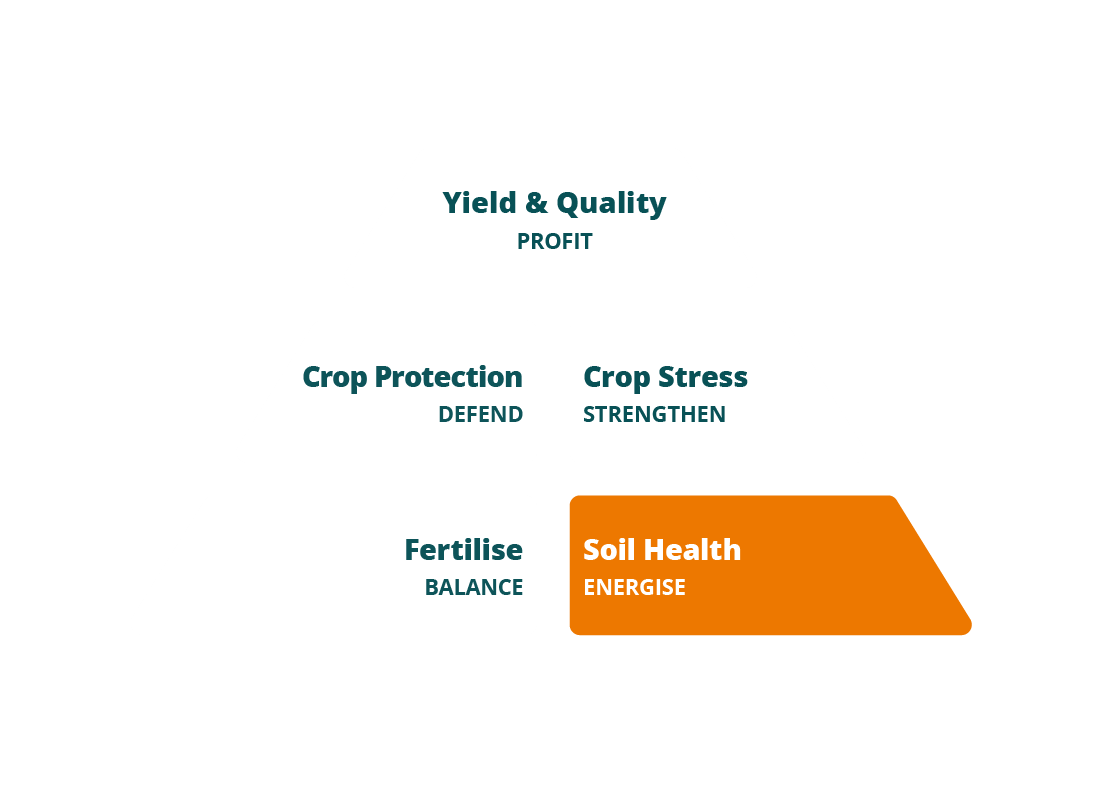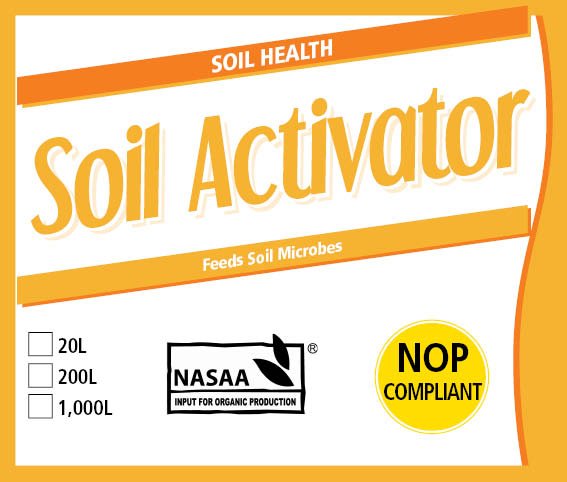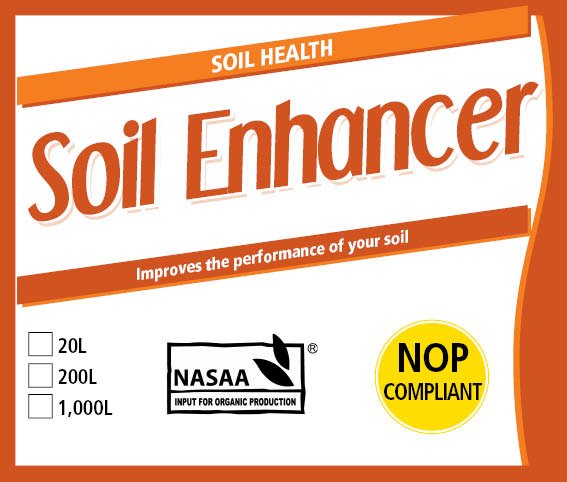Healthy Soils Are Productive Soils
Improve soil nutrient availability and suppress disease.
Underperforming soils cost you!
Create productive soils with our practical soil health solutions.
Productive soils have good soil structure, strong nutrient availability and less disease.
Two key components to improve soil productivity:
- Humus, the most active component of carbon, is an important component of good soil structure and leads to better root growth, water penetration and retention.
- A healthy beneficial microbe population which allows nutrients to remain available to plants for longer, and reduces the incidence and severity of disease.
Create productive soils with our practical soil health solutions supported by science, research and trials over 20+ years.
- Soil Enhancer - Easy to use formulation that contains humus, the most active component of soil organic matter, seaweed extracts,
amino acids and vitamins. is an important component of good soil structure and leads to better root growth, water penetration and retention. - Soil Activator - Easy to use formulation that contains multiple microbe food sources to feed beneficial microbes to boost numbers and activity - amino acids, vitamins, seaweed extracts, humus, fish & molasses.
Contact us or use our Soil Health Calculator to work out what will suit your soil and crop type.
Crop Type - The Soil Health Calculator factors in your specific crop’s fungal/bacteria ratio to optimise growth. This is important because different plant species require different proportions of fungi and bacteria in their root zones to grow at their optimum levels.
Soil Type - The Soil Health Calculator factors in your soil type to determine the active carbon your soil and crop needs.
Different soil types have different requirements.
Scientific trials and soil surveys show that active soil microbes are a key component to healthy soils and important to ensure your soil performs. These beneficial fungi and bacteria improve nutrient availability and protect the crop from disease. (Janvier 2007; Ratnadass 2012) We also know that as beneficial microbial populations decline, disease increases. (Geense et al 2015; Crecchio 2004; Abawi2000).
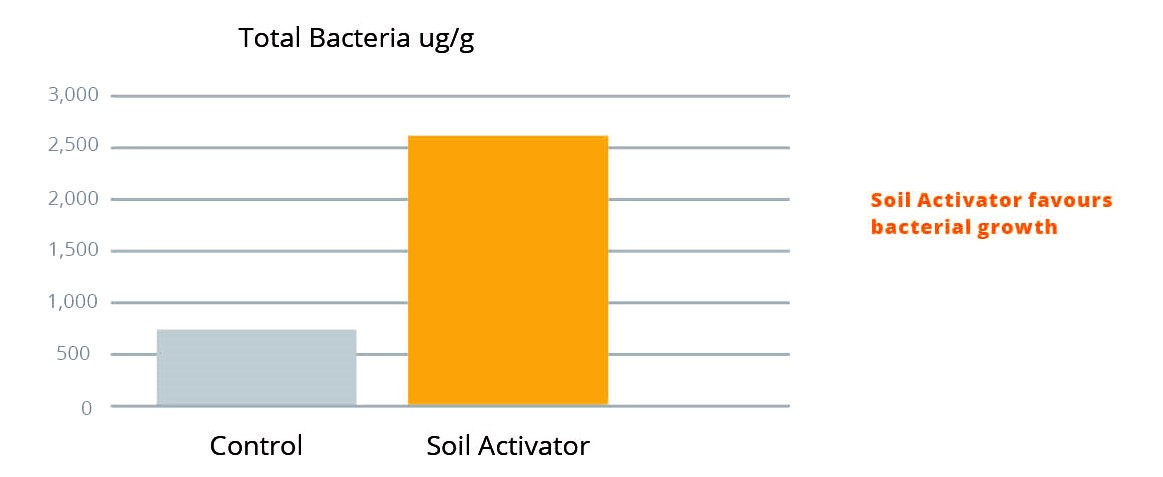
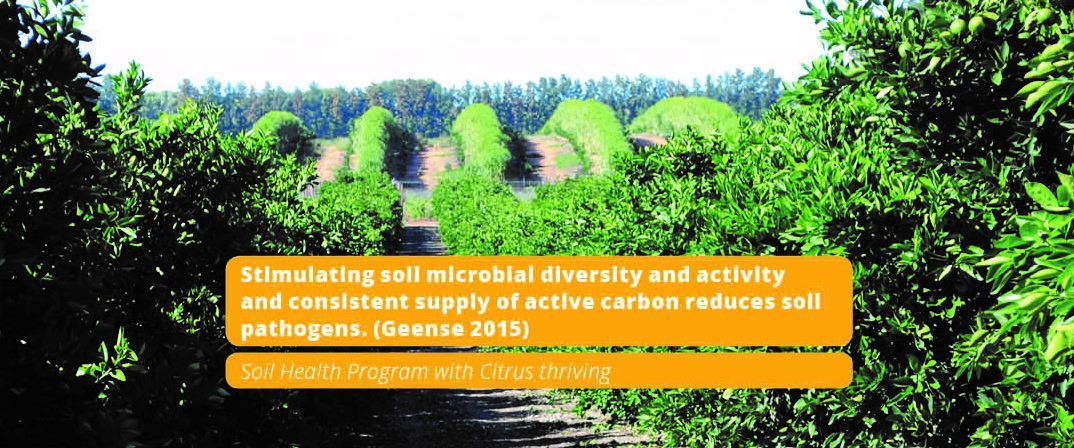
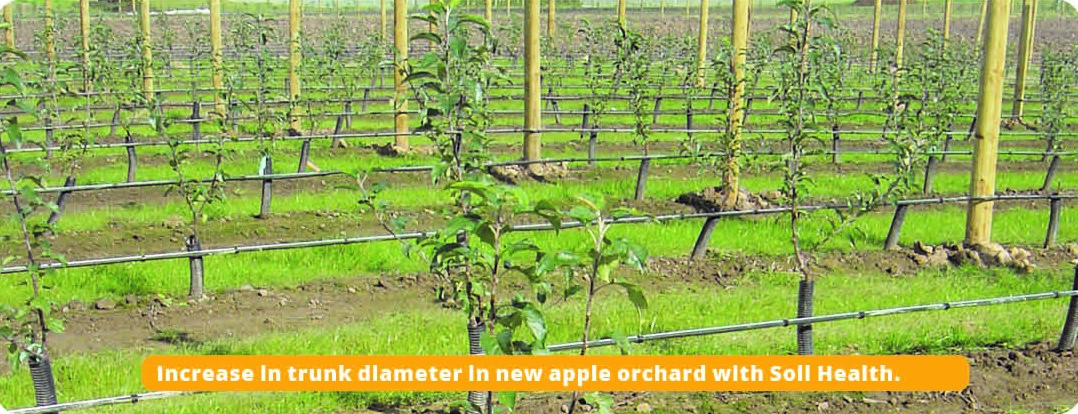
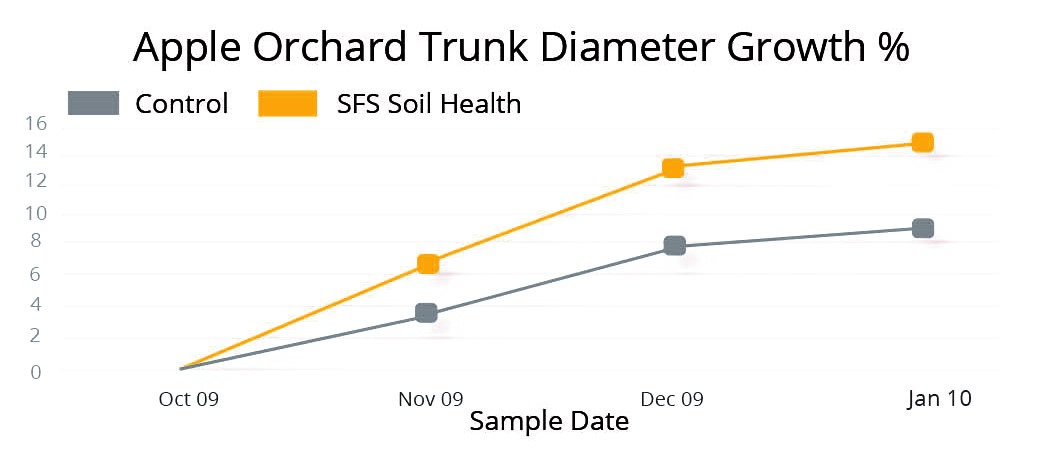
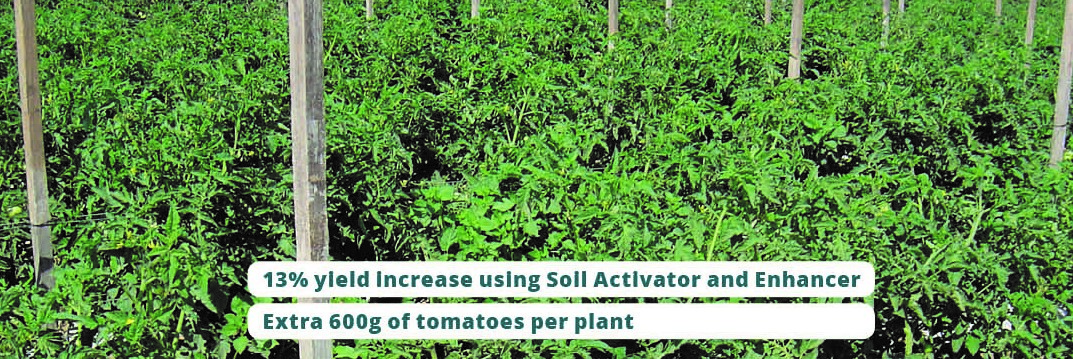
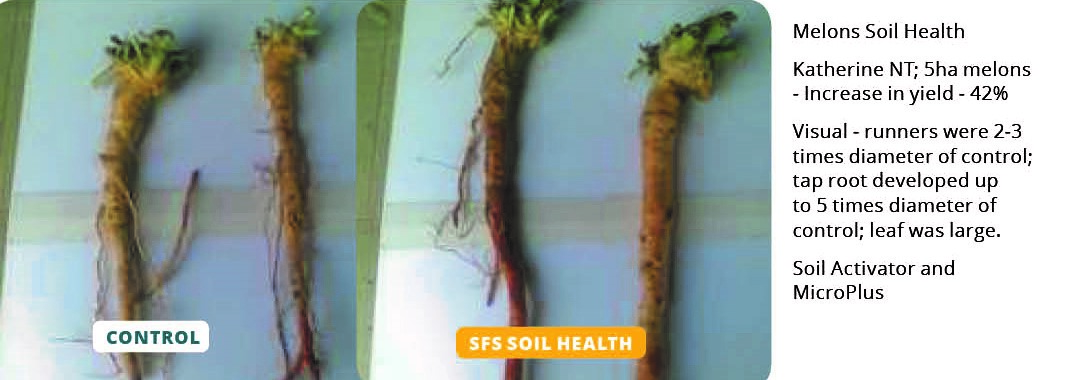
Organic matter plays a key role in many soil processes. Its decomposition by fungi and bacteria is a highly important process that helps improve soil structure, release, unlock and recycle nutrients and protect roots from pathogens. Humus, the most active component of soil organic matter, is an efficient way to get the benefits of soil organic matter without significantly changing production methods.
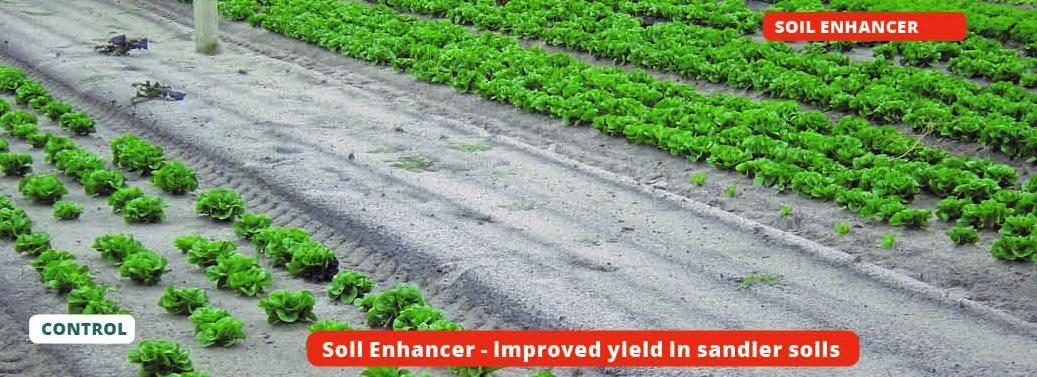
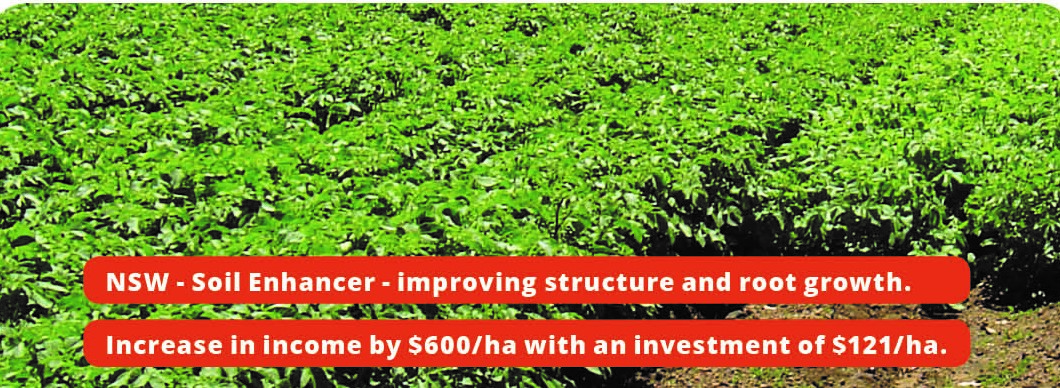
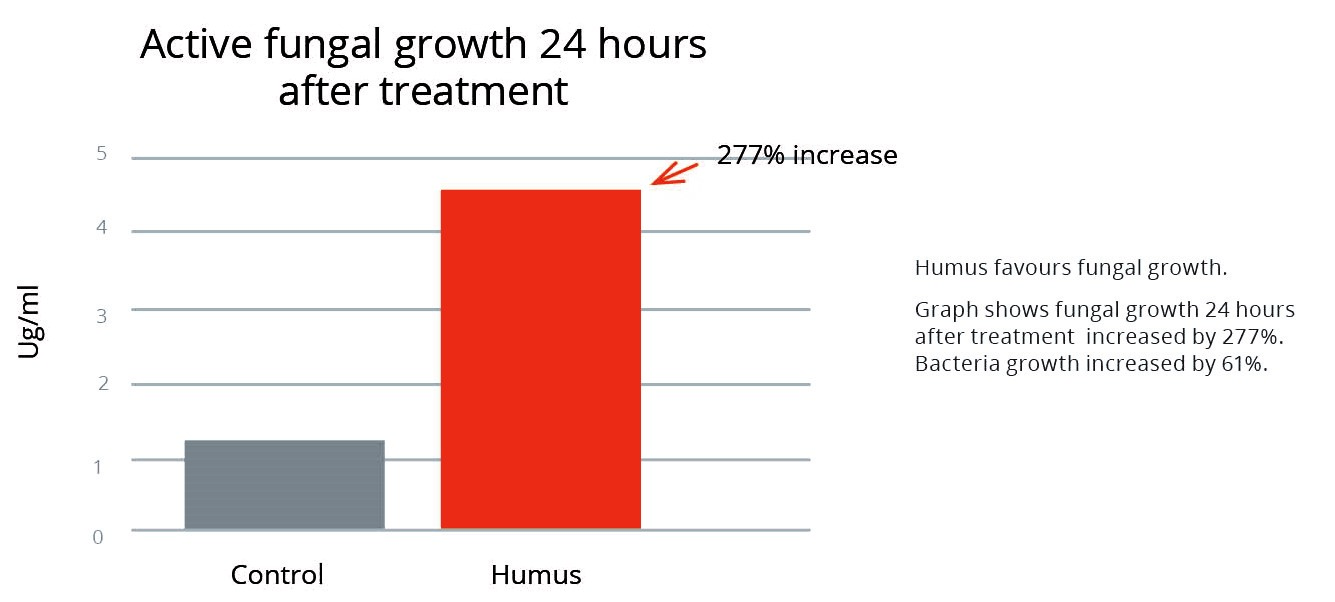
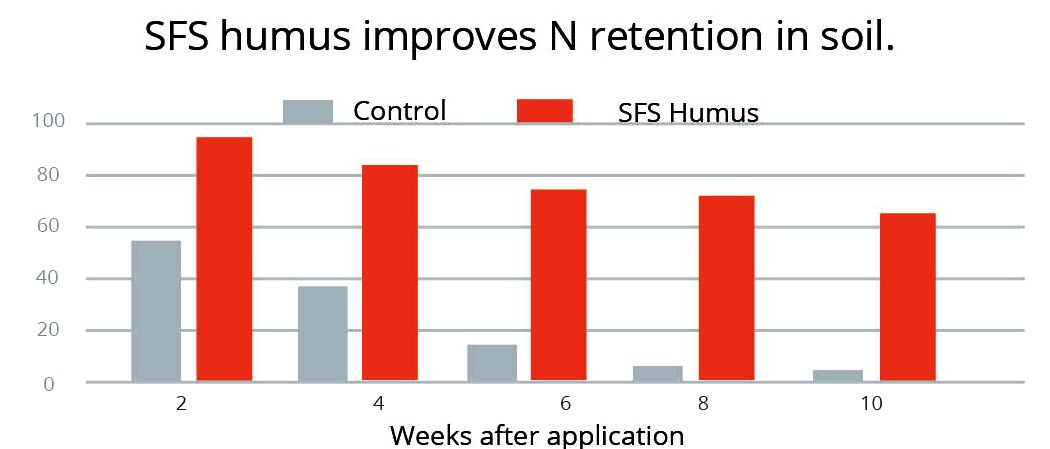

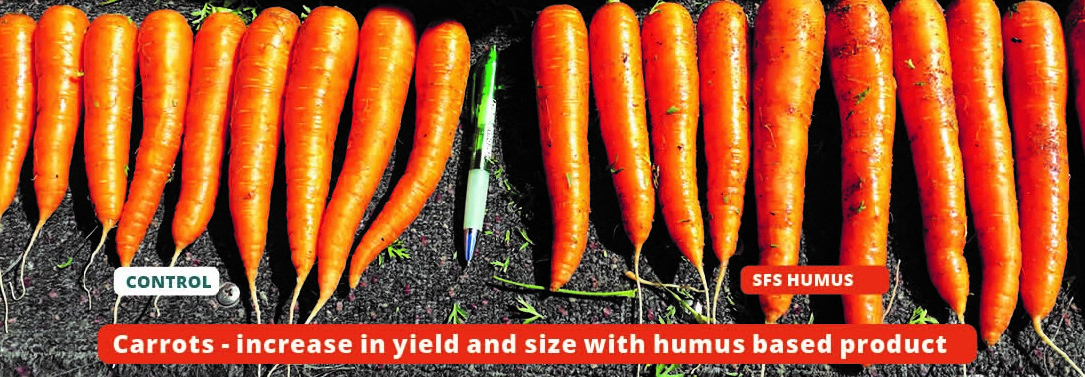

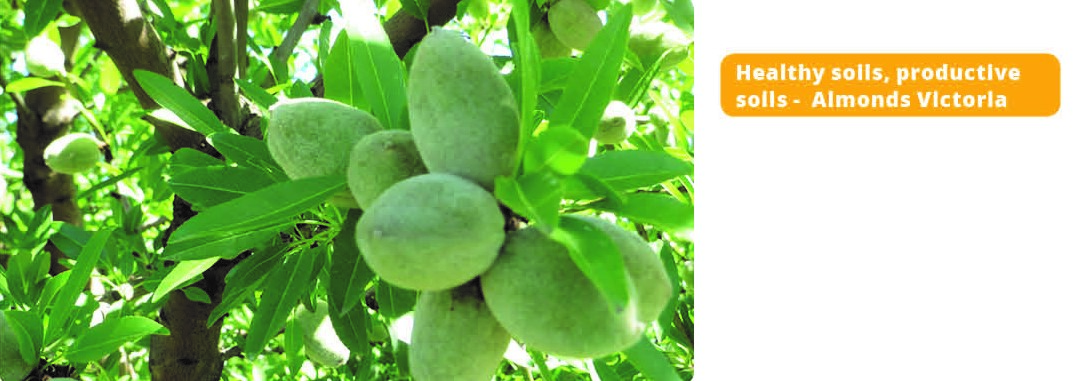
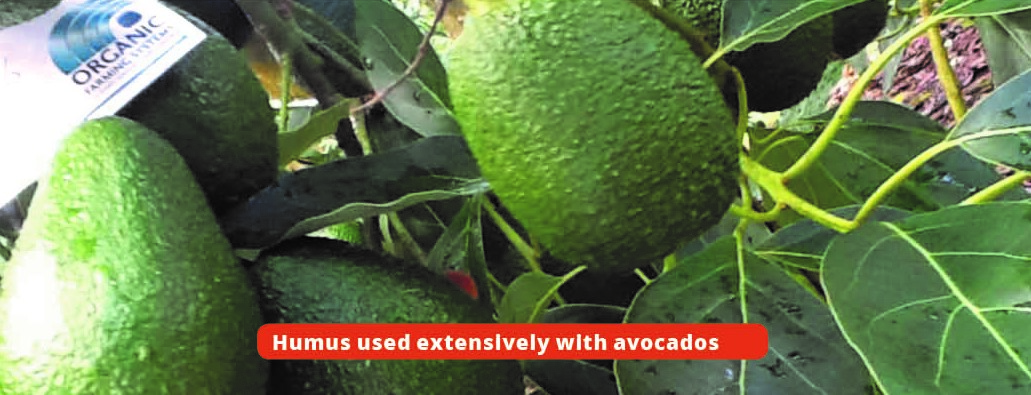
Healthy productive soils reduce disease, increase nutrient availability and improve water efficiency.
Many broadacre and horticultural farmers are concerned about a steady increase in fertiliser use and a corresponding decline in soil quality. This reduction in quality is reflected in reduced organic matter levels, reduced quality and uniformity of produce, and compacted soils which requires more horsepower to cultivate.
Different soil types and crops have different soil health requirements. Activities that promote soil health benefit farming operations in a number of ways:
- Reduced plant disease
- Improved nutrient availability
- Improve soil structure.
Improving your soil in this way supports increased crop yields and quality. Research has shown that the benefit of healthy soils comes from four simple aspects of the soil and the plants:
There is also benefit to be gained by balancing soil minerals.
Soil Health Calculator
A tool to help you create productive soils
Factors in:
- What will make the most difference - humus + microbial activity
- What suits your soil - soils are different
- What suits your crop - crops are different
- What is practical - easy to fit into your system

